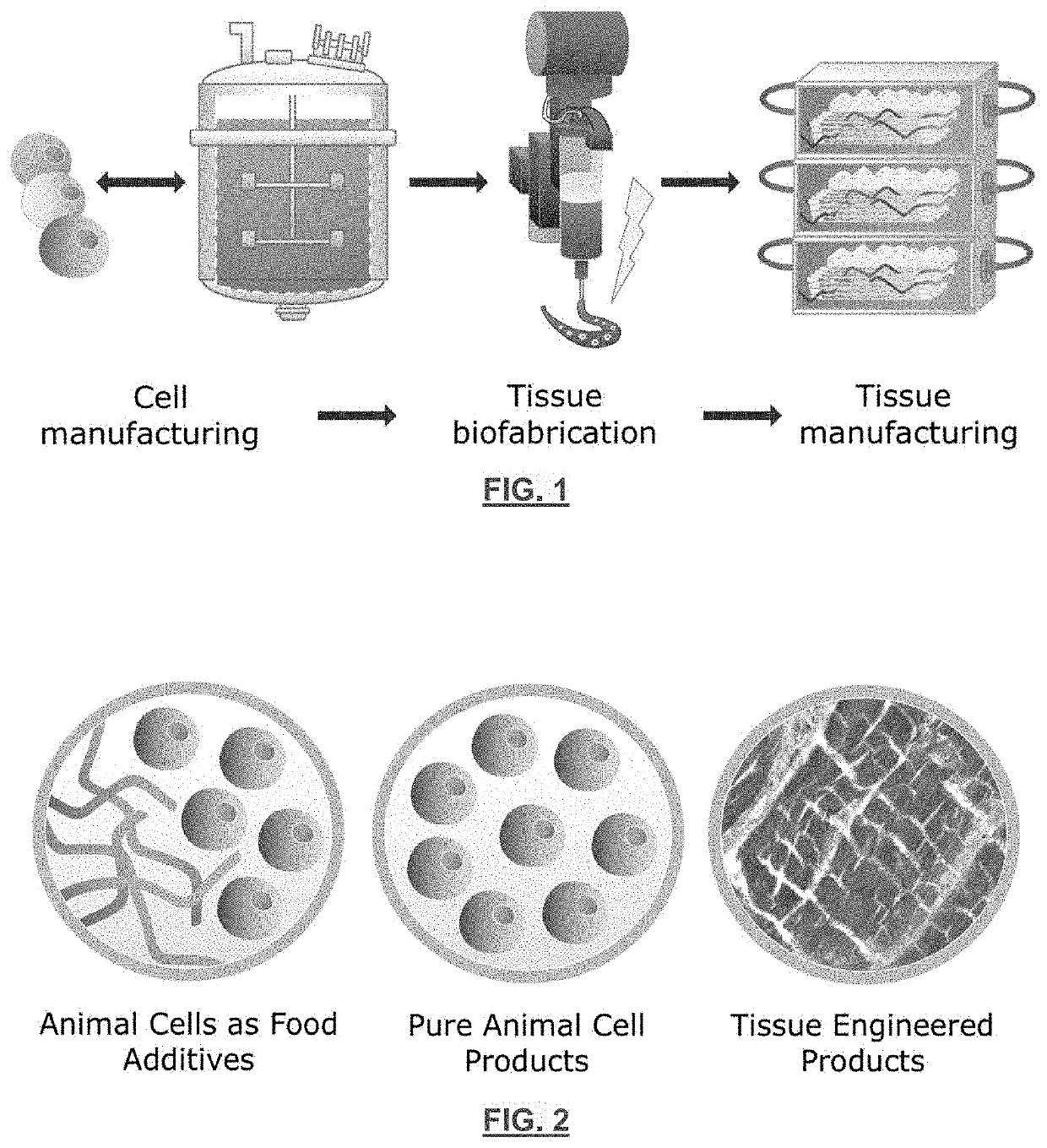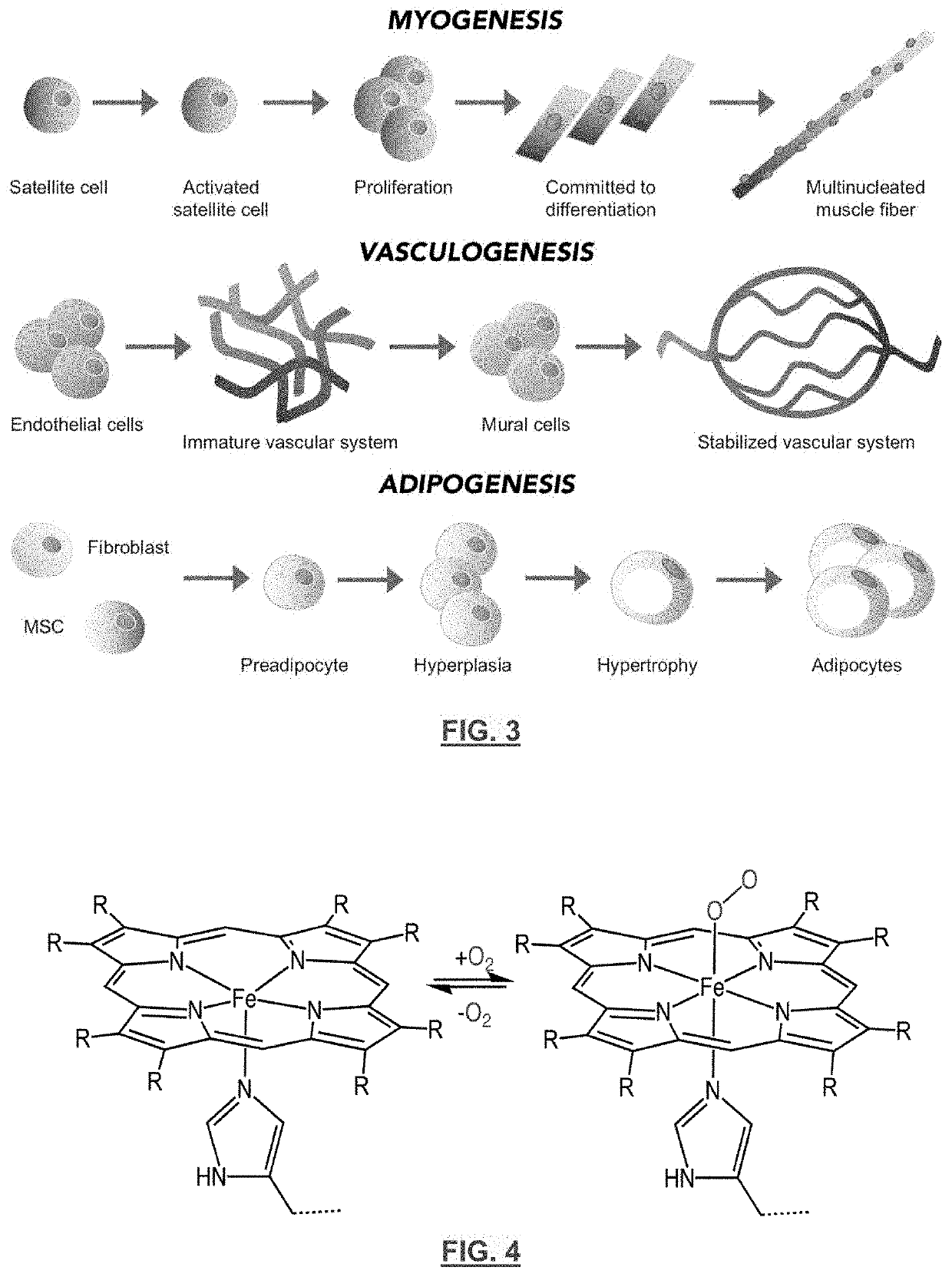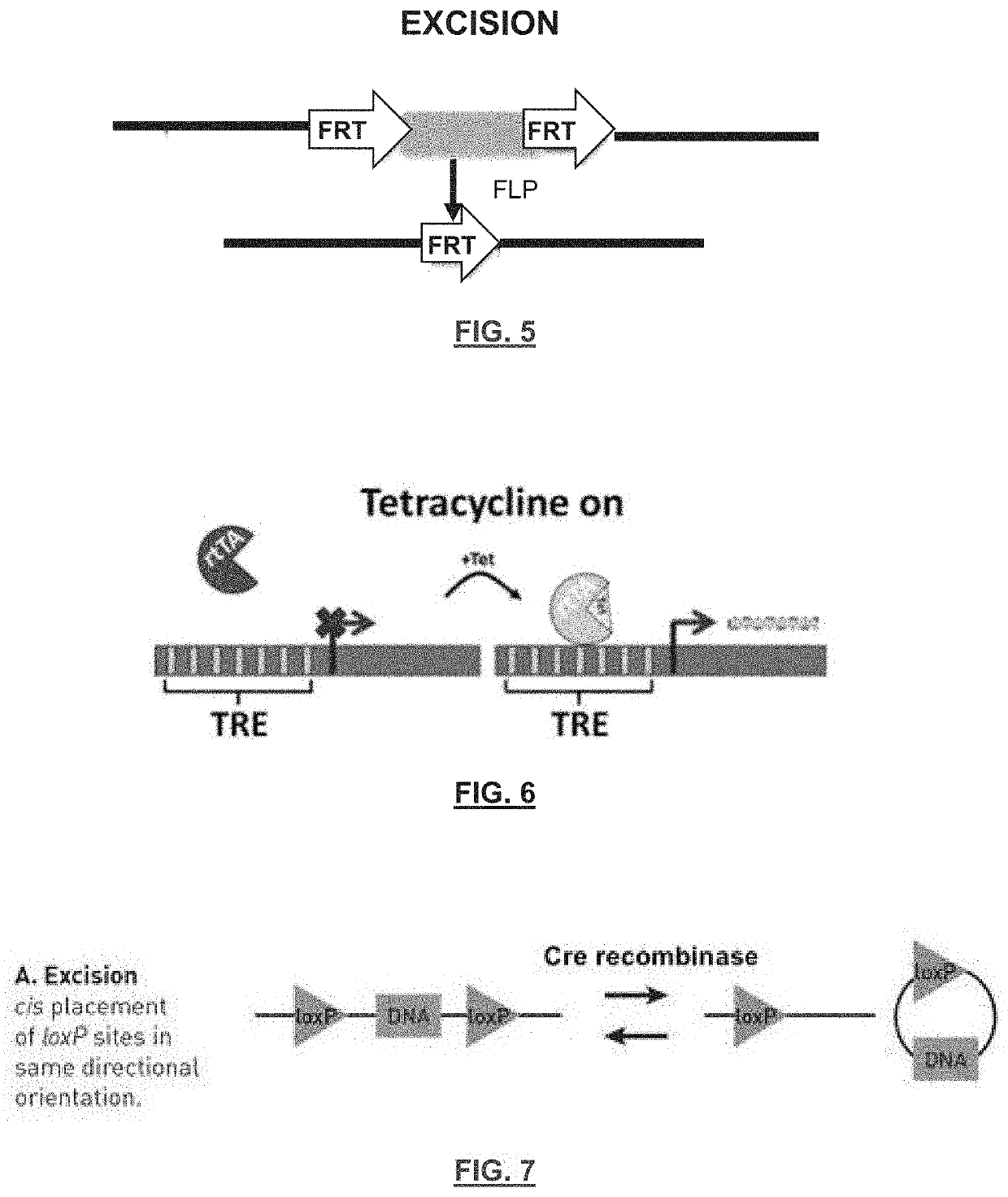Animal cell lines for foods containing cultured animal cells
a technology of animal cells and food, applied in the field of modified cell lines, can solve the problems of contamination of the environment, poor management of animal waste, and production of greenhouse gases, and achieve the effect of reducing the genetic footprint of the meat produ
- Summary
- Abstract
- Description
- Claims
- Application Information
AI Technical Summary
Benefits of technology
Problems solved by technology
Method used
Image
Examples
##ventive embodiments
Examples of Inventive Embodiments
[0166]In the example embodiments below, “cell genome” refers to the complete set of DNA of an organism, including all genes, of the animal cell line selected for use. The invention contemplates that a variety of animal cell lines can be used for meat production according to the inventive methods. Animal cell line sources include but are not limited to mammalian, poultry, and aquatic species as discussed herein.
embodiment 1
[0167]A genetic cassette including genes that promote cell cycle progression and telomerase is inserted into the cell genome, flanked by FRT or LoxP sites. After expansion of the cell line to sufficient biomass, the genes are excised via induction of flippase or Cre expression from the Tet-On system, with the addition of tetracycline, or through addition of recombinant Cre or Flippase to the cell culture media.
embodiment 2
[0168]A genetic cassette including genes that promote cell cycle progression is inserted into the cell genome, flanked by FRT or LoxP sites. The cells are expanded in cell culture medium containing recombinant telomerase enzyme to maintain telomere length. After expansion of the cell line to sufficient biomass, the genes are excised via induction of flippase or Cre expression from the Tet-On system, with the addition of tetracycline, or through addition of recombinant Cre or Flippase to the cell culture media.
PUM
| Property | Measurement | Unit |
|---|---|---|
| molecular mass | aaaaa | aaaaa |
| wavelength | aaaaa | aaaaa |
| wavelength | aaaaa | aaaaa |
Abstract
Description
Claims
Application Information
 Login to View More
Login to View More - R&D
- Intellectual Property
- Life Sciences
- Materials
- Tech Scout
- Unparalleled Data Quality
- Higher Quality Content
- 60% Fewer Hallucinations
Browse by: Latest US Patents, China's latest patents, Technical Efficacy Thesaurus, Application Domain, Technology Topic, Popular Technical Reports.
© 2025 PatSnap. All rights reserved.Legal|Privacy policy|Modern Slavery Act Transparency Statement|Sitemap|About US| Contact US: help@patsnap.com



